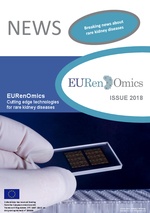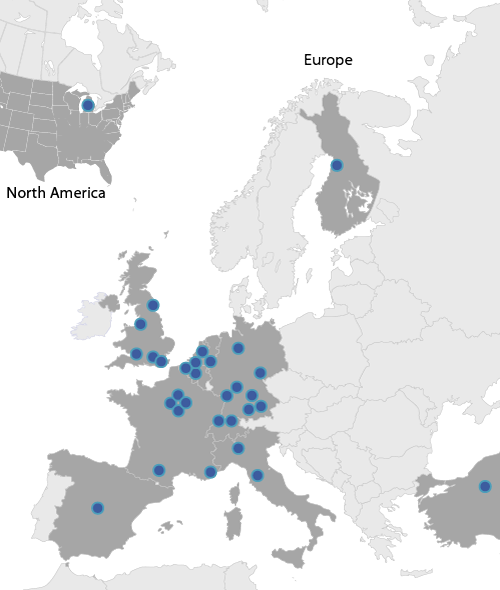Heidelberg University Medical Center
Heidelberg University Medical Center
Division of Pediatric Nephrology and KFH Children’s Kidney Center
Center for Pediatrics and Adolescent Medicine
Im Neuenheimer Feld 672
69120 Heidelberg
Germany
Project Staff
Charlotte Hadtstein, M.D.
Central data management
Sven Schnaidt, Ph.D.
Biostatistics
Mansoureh Tabatabaei, Ph.D.
Post-Doc, transgenic mouse studies
Tanja Wlodkowski, M.Sc.
Ph.D. student, transgenic mouse studies
Helga Denc, M.D.
Ph.D. student, transgenic mouse studies
Liang Yu, M.D.
Ph.D. student, zebrafish studies
Technical personnel
Barbara Rodenbeck, Alexandra Ochs, Bärbel Philippin
Institute Presentation
Heidelberg University Medical Faculty and Hospital are among the leading institutions for clinical and translational research in Germany. Heidelberg University researchers maintain close collaborative ties to several internationally renowned research institutions such as the German Cancer Research Center (DKFZ), the Center for Molecular Biology Heidelberg (ZMBH), the European Molecular Laboratory (EMBL), and the Max Planck Institute for Medical Research. In addition, the University has established the Bioquant Center for Quantitative Analysis of Molecular and Cellular Biosystems, an institution devoted to systems biology research with Core facilities for Deep Sequencing, Advanced Imaging, Electron Microscopy, and RNAi screening.
The Center for Pediatrics and Adolescent Medicine has a strong focus on clinical and translational research in rare diseases and is part of the Center for Rare Diseases University Medicine Heidelberg. The Division of Pediatric Nephrology is one of the largest clinical institutions in Europe devoted to the care of children with acute and chronic kidney disorders.
Dr. Schaefer’s group has a long-standing track record in clinical and experimental research in pediatric kidney diseases. Dr. Schaefer has founded and coordinates several international clinical research consortia such as the ESCAPE Clinical Research Network for Children with Chronic Kidney Disease, the International Pediatric Dialysis Network and the PodoNet Consortium for clinical, genetic and experimental podocyte research.
The group runs a molecular nephrology lab fully equipped for molecular genetic, animal and cell culture research, RNA, protein and histochemistry studies. The central biorepository currently holds 40,000 aliquots from 2,500 children with rare renal diseases.
The group’s long-standing expertise in coordinating collaborative research projects will be utilized to establish the Scientific Central Office of the EURenOmics consortium (WP1). The Office will also function as the Data Coordinating Center for the Consortium.
The Heidelberg group will be actively involved in the scientific work packages 2, 5 and 6 of the project. The patient cohorts and biobanks of the PodoNet and ESCAPE networks will be contributing to WPs 2 and 6. Furthermore, the group will execute experimental tasks in WP2, studying in vivo the effect of candidate compounds in a novel murine knock-in model of hereditary nephrotic syndrome caused by mutations in the NPHS2 gene.








